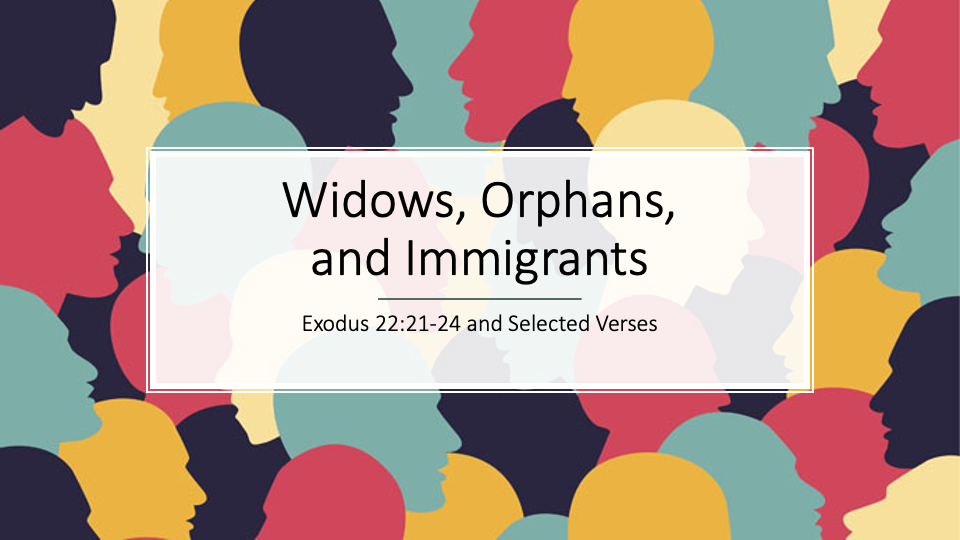
Widows, Orphans, and Immigrants (Exodus 22:21-24)
It is universally true, thankfully, that decent folks don’t like it when people take advantage of other people. Wherever we go in the world—from the most primitive cultures to the most civilized societies—people do not appreciate the intentional oppression of other people, especially disadvantaged people. More importantly, God doesn’t like it when people take advantage of other people. They are, after all, made in his image.
Unlike other law codes from the ancient Near East, God’s laws show a remarkable concern for widows, orphans, and immigrants. Indeed, the penalty for mistreating such vulnerable people is high. This message looks at various aspects of these laws, all of which tell us something about the nature and ways of the God who gave them. Clearly, God is the champion of the poor, the outsider, the unfortunate, the defenseless, the powerless, and the desperate. As such, he wants his people to protect them, be kind to them, and provide for their needs.
The God who gave these laws has a big heart, and it especially goes out to those whom Jesus called “the least of these.” God is angered by such things as racism, prejudice, bigotry, discrimination, neglect, and harsh or condescending treatment of those of another race. Making life more difficult for those for whom it is already hard is infuriating to him. Therefore, God wants his people to try to put themselves in other people’s shoes, and to treat them as they would want to be treated if they were in a similar situation.
When Jesus was on earth, he embodied these laws perfectly. He cared for the widows, treasured the orphans, and welcomed the immigrants. To be Christlike, then, means to share God’s concern for widows, orphans, and immigrants. For God’s people, this concern must translate into action. The sermon concludes with a word of hope for those who may have broken these laws, and encouragement for how they might go about being better aligned with God’s heart moving forward.
